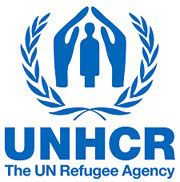The Government of Pakistan, with the support of UNHCR, the UN Refugee Agency, completed the verification of some 1.3 million registered Afghan refugees residing in Pakistan.
The Documentation Renewal and Information Verification Exercise, known as DRIVE, was aimed at updating and verifying the data of Afghans holding a Proof of Registration (PoR) card. The exercise was a joint effort conducted by the Ministry of States and Frontier Regions (SAFRON), the Chief Commissionerate Commissioner for Afghan Refugees (CCAR), and UNHCR with the technical assistance of the National Database and Registration Authority (NADRA).
“The data of Afghans was not updated in the last 10 years, therefore it was imperative to verify and update records which will enable us to better understand existing needs in the refugee communities,” said Mr. Saleem Khan, Chief Commissioner for Afghan Refugees in Pakistan.
Close to one million new smart identity cards have been issued to date with a validity until 30 June 2023, with children under the age of five included in parents’ cards.
DRIVE also provided an opportunity for Afghan refugees to flag specific protection needs or vulnerabilities. More detailed information about refugees’ socioeconomic circumstances will allow to better assist them for their self-reliance in Pakistan and more tailored support, for those who express their intention to return to Afghanistan, when conditions allow.
Key findings of DRIVE exercise revealed that more than half (52 percent) of the registered refugee population are children, including 197,428 (15 percent) being four years of age or under. Only 4 percent of those registered are 60 years of age or older. Women, children and older represent 76 percent of the population. Over half of registered Afghan refugees reside in Khyber Pakhtunkhwa province.
Ms. Noriko Yoshida, UNHCR’s Representative to Pakistan underscored that the smart cards are an essential protection tool for Afghan refugees. “They provide proof of identity, entitlement to temporary stay in Pakistan, and freedom of movement. They facilitate access to certain essential services, including education, healthcare, banking, property rental and allied facilities.”










